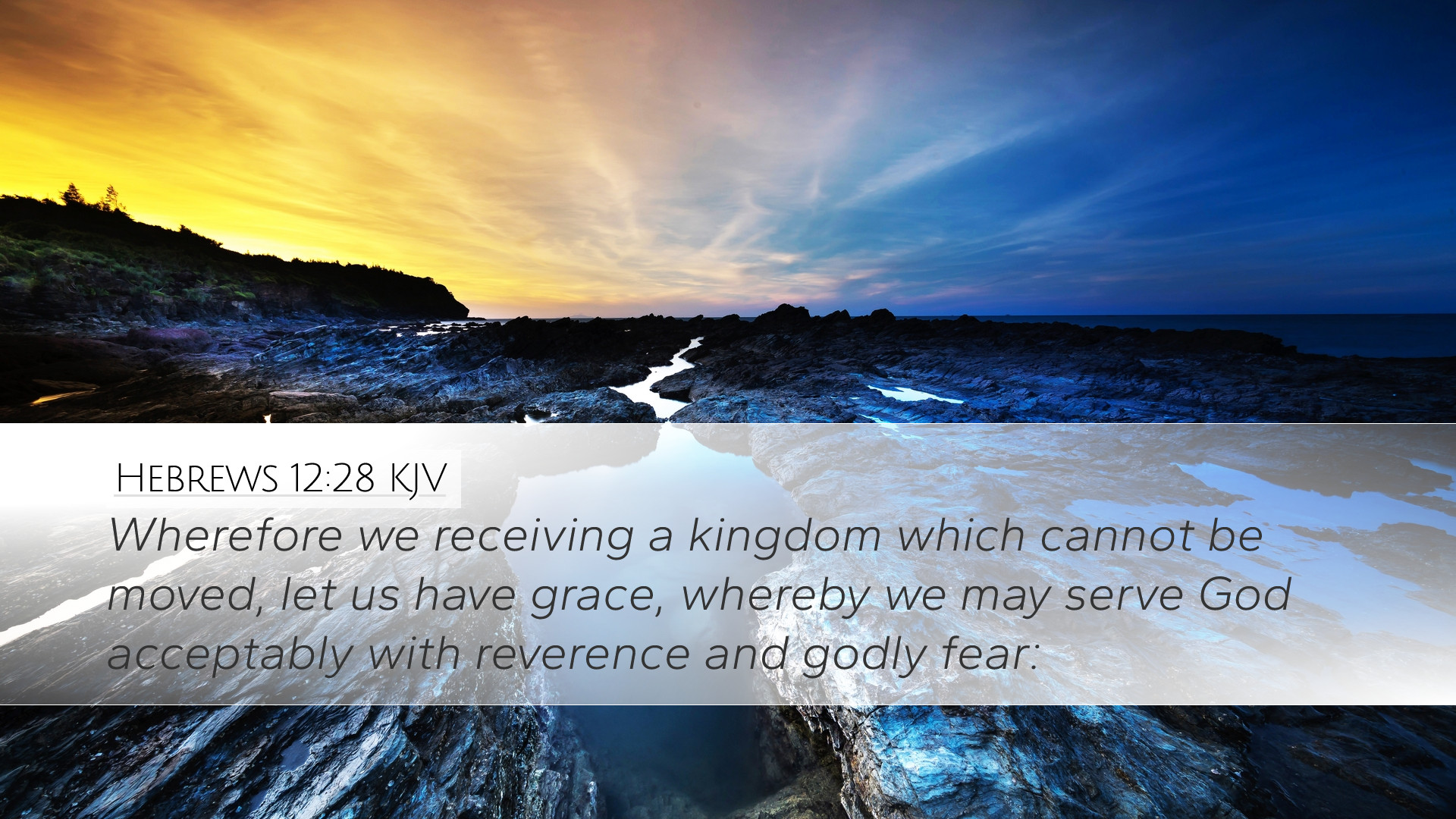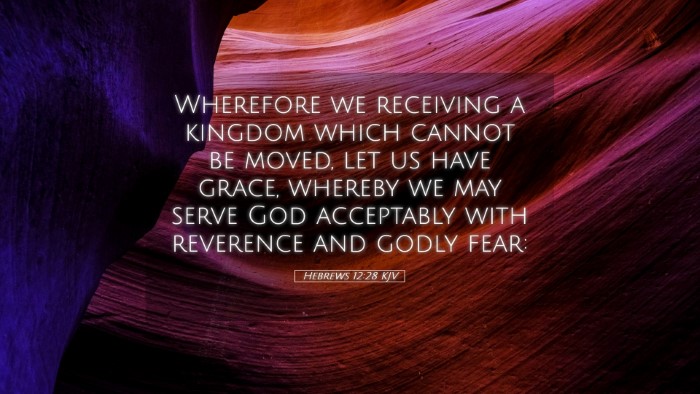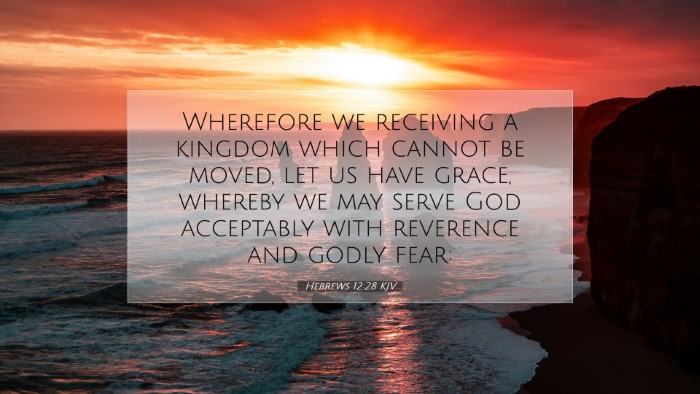Commentary on Hebrews 12:28
Hebrews 12:28 states:
"Therefore let us be grateful for receiving a kingdom that cannot be shaken, and thus let us offer to God acceptable worship, with reverence and awe."
Introduction
This verse concludes a profound theological discussion regarding the unshakeable nature of God's kingdom and our response to this grace. The author of Hebrews encourages believers to live in gratitude and offer worship that is both reverent and awe-filled. This commentary synthesizes insights from Matthew Henry, Albert Barnes, and Adam Clarke to provide a meaningful reflection for pastors, theologians, and students of Scripture.
Contextual Background
The epistle to the Hebrews addresses early Christians who were experiencing trials and temptations to revert back to Judaism, aiming to affirm the superiority of Christ and His covenant. In the preceding verses, the author contrasts the fearsome revelation on Mount Sinai with the glorious, unshakable kingdom of God established through Christ.
Verse Breakdown
1. Receiving a Kingdom
The phrase "receiving a kingdom" is significant as it indicates not merely an inheritance but an active acceptance of God's sovereign rule. Matthew Henry emphasizes that this kingdom is "not of this world" and is characterized by divine authority and unending reign.
2. A Kingdom that Cannot be Shaken
Albert Barnes notes the contrast between the transient nature of earthly kingdoms and the eternal stability of God's kingdom. The shakability of worldly systems often leads to fear and uncertainty, but believers are assured that God's kingdom stands firm amidst turmoil. Adam Clarke explains that this unshaken nature is tied to its foundation in Christ, the Rock of Ages.
3. Acceptable Worship
Acceptable worship is an essential outcome of recognizing God's kingship. The phrase indicates that worship must be intentional and aligned with God's holiness. Matthew Henry asserts that worship should arise from a heart attuned to gratitude, reflecting the acknowledgment of God's grace.
4. With Reverence and Awe
The call to worship "with reverence and awe" elevates the act of worship beyond mere ritualistic practice. Albert Barnes interprets reverence as deep respect and awe as a recognition of God's majesty. Clarke extends this further, urging believers to approach God with a sense of His holiness and power, aware of the great responsibility that accompanies such communion.
Theological Implications
This verse underlines several critical theological tenets:
- The Sovereignty of God: The acknowledgment that God reigns supreme over all creation.
- Assurance of Salvation: The assurance that believers are part of an eternal kingdom, which offers them security and hope.
- The Nature of Worship: The understanding that true worship is both an act of gratitude and a response to God’s holiness.
Application for Believers
For pastors, students, and scholars, Hebrews 12:28 offers rich application:
- Cultivating Gratitude: Encouraging congregations to live in constant thankfulness for their salvation and status in God’s kingdom.
- Emphasizing Worship: Developing a theology of worship that prioritizes heart-centered engagement with God, rooted in reverence and awe.
- Understanding Kingdom Ethics: Living in a way that reflects the values of the unshakable kingdom, including love, justice, and mercy.
Conclusion
Hebrews 12:28 invites believers to a profound understanding of their identity in Christ and the nature of their worship. In light of the unshakeable kingdom, our gratitude and worship become not just obligations but joyful responses to the incredible grace offered through Jesus. As we explore the depths of this passage, may we be inspired to live out our faith with reverence, awe, and an everlasting joy that stems from the security of God’s eternal kingdom.


